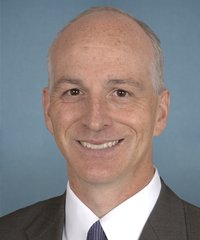
Adam Smith was born on June 15, 1965, in Washington, D.C. Adam was raised in SeaTac, Washington where his father, Ben, worked as a ramp serviceman at SeaTac Airport and was active in the local Machinists’ Union. His mother, Leila, stayed at home, raising Adam and his two brothers. Adam attended Bow Lake Elementary, Chinook Middle School, and Tyee High School, graduating from Tyee in 1983.
After a year at Western Washington University, Adam transferred to Fordham University, where he worked his way through college loading trucks for United Parcel Service and graduated in 1987 with a degree in Political Science. Following his graduation, Adam attended the University Of Washington School Of Law, and earned his law degree in 1990. He later worked in both private and public practice, first as a lawyer at Cromwell, Mendoza and Belur in 1992, and then as a prosecutor for the City of Seattle from 1993-1995. As a prosecutor, Adam focused on drunk driving and domestic violence cases, and in 1996, went on to work as a judge pro tempore.
I understand the importance of improving infrastructure in the US, and will continue to work on this while making sure our investments are fiscally responsible. Our infrastructure provides jobs for thousands, provides for the efficient movement of goods that keeps our economy growing, and ensures the safety of countless lives.